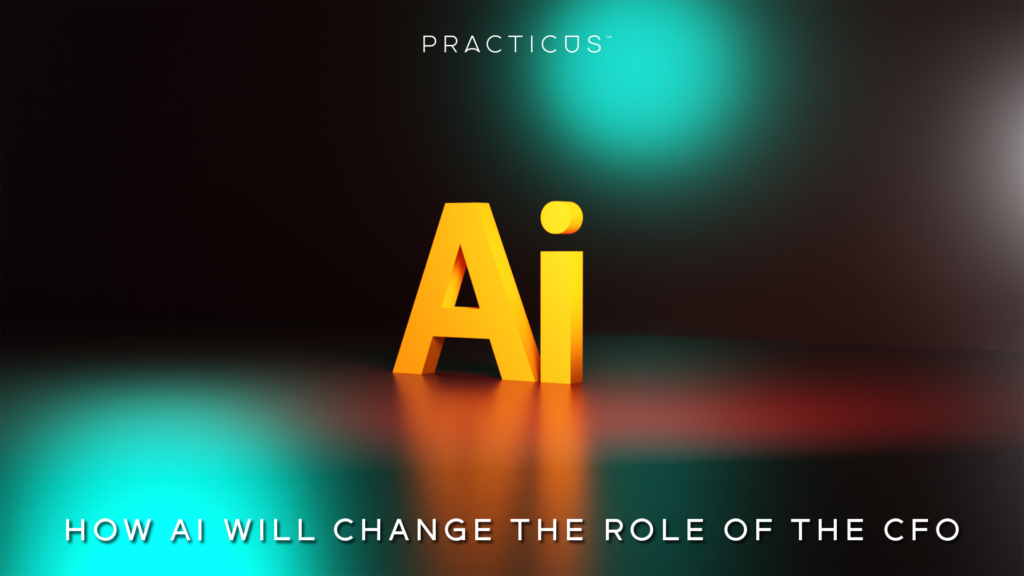How AI will change the role of the CFO

AI is set to change the lives of Chief Officers everywhere but perhaps most worthy of discussion is the particular impact on the Chief Financial Officer (CFO).
Event Report
Date: August 23, 2024
Time: 12:04 PM BST
Facilitator: John Cusworth
Introduction
The event brought together financial professionals to discuss how artificial intelligence (AI) is poised to reshape the role of the Chief Financial Officer (CFO). Attendees shared insights from their personal experiences with AI, ranging from its practical applications in day-to-day finance operations to its long-term strategic implications.
Key point of discussion
1. Data Integrity: The Foundation of Effective AI
A key point stressed by those attending is that AI is only as effective as the data it processes. The common sentiment was, “rubbish in, rubbish out,” highlighting the importance of data quality. Reflecting on past experience in financial services, one attendee noted that without proper data input, AI’s outputs would lack reliability. While AI has the potential to streamline processes like reconciliation, critical human oversight is still required to ensure the results are meaningful.
Concerns were also raised about data security, particularly in Fintech and other sensitive industries, where deploying client data in public AI environments could lead to serious breaches. This emphasised the need for secure, well-managed AI platforms within a finance setting.
2. The Evolving Role of the CFO: From Data Custodian to Strategic Leader
To the mind of one of the CFOs attending, AI was another step in a broader shift in the CFO’s role. Rather than being merely a custodian of financial data, the modern CFO is becoming more involved in business transformation. This lady, who also has a technical background, stressed the importance of data structuring and the need to foster a cross-departmental understanding of data processes. She suggested that AI will amplify the significance of these foundational elements, particularly in forecasting and decision-making processes. However, she noted that despite AI’s potential, human input will remain critical for proper interpretation and alignment across business systems.
3. AI in Auditing and Reporting
Other speakers touched on the increasing use of AI in audit functions. For instance, one mentioned her experience with auditors who are beginning to leverage AI for data analysis. AI tools are now being used to examine journal trends, predict anomalies and identify inefficiencies, although the speakers agreed that AI is not yet fully reducing costs in these areas.
Several of those attending expanded on this, describing how AI could be used to generate management reports by synthesising monthly results into presentable formats. They highlighted Oracle’s use of AI to create narrative reports based on data inputs, saving time and resources. However, they cautioned that data consistency across departments remains a challenge, particularly in businesses that have gone through mergers and acquisitions.
4. AI’s Impact on Finance Teams and Skillsets
The future implications of AI on finance team structures were a key talking point. While AI is expected to automate routine tasks, it will also demand a more tech-savvy workforce. One lone voice expressed concern that the automation of lower-level finance jobs might lead to the recruitment of more technically skilled, and therefore more expensive, employees. This shift in recruitment will need to be carefully managed to ensure that finance teams remain effective and engaged.
One CFO shared how she uses AI tools like ChatGPT for document editing and improving efficiency in meetings, noting that AI can be a helpful assistant rather than a replacement.
5. AI Beyond Finance: A Holistic Approach
Others took a broader view of the impact of AI, discussing its potential to integrate multiple business systems — from HR to customer relationship management (CRM) — into a seamless model that could help CFOs make more informed decisions. One of the CFOs attending envisions a future where AI can simulate entire business models and optimise processes but he acknowledges that such advancements are likely still 15-20 years away.
Similarly, there was discussion on the need for AI tools to advance beyond their current capabilities in analytics and reporting. Mentioned was made of the lack of tangible insights from many AI-focused white papers and how the potential of AI in Finance is still in its infancy, particularly for small and medium-sized enterprises (SMEs) where AI tools may not yet be affordable or scalable.
6. Organisational Readiness for AI
One of the strongest voices on the day addressed organisational readiness, stressing that successful AI adoption depends on aligning data definitions across departments and ensuring a solid foundation for data management. She also noted the challenge of calculating return on investment (ROI) for AI initiatives, particularly in uncharted areas where proven efficiencies may not yet exist.
Conclusion
The discussion concluded with the consensus that while AI will undoubtedly impact the role of the CFO, it is not poised to replace the need for critical thinking and human oversight. The automation of routine tasks, enhanced data analysis and improved business reporting were seen as significant benefits. However, the attendees agreed that the successful integration of AI will depend on clean data, secure environments and a clear understanding of AI’s limitations. Furthermore, the role of the CFO is expected to evolve, requiring a balance between technical proficiency and strategic leadership.
As AI becomes more entrenched in financial operations, the CFO’s role will increasingly focus on ensuring that data-driven decisions are both accurate and aligned with broader business goals.
Next steps
John Cusworth, presiding, concluded the event by thanking the participants and announcing plans to follow up individually for feedback. He also indicated that future sessions on AI and its impact on the finance sector are in the works.
This format provides a structured summary of the roundtable discussion, aligning it with the strategic needs of executives and enhancing understanding and application of AI at an executive level.
More on CFO and AI
- Interim CFO
- Fractional CFO
- Artificial Intelligence
ABOUT PRACTICUS
You can find out more about us on the about us page
